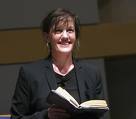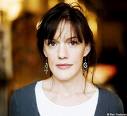Philosophers have long troubled themselves over the nature and purposes of irony. It was the subject of Kierkegaard’s doctoral thesis which reached back to Socrates, Plato, Aristophanes and Xenophon for its grist. Analyses of irony seem to imply its defense, since irony so often entails saying something instead of actually doing something, an act of sharp verbal dexterity that dreams of slicing off the dragon’s head. In Chic Ironic Bitterness (University of Michigan, 2007), R. Jay Magill makes the following case:
“Raising its perky head most alertly when it sees a dreaded state of affairs passing as normal, the ironic, satiric turn seen so frequently of late is a way to distance oneself from threats to integrity. Indeed more than a figure of speech, the ironic worldview, when performing, does something rarely examined in debates about it in the recent past: it paradoxically and secretly preserves the ideals of sincerity, honesty, and authenticity by momentarily belying its own appearance. It must vigilantly maintain the split between the social role and the inward self to shield what is valuable.”
But “chic ironic bitterness” may sound more like cynicism, the irony cramped on either side by grim stylishness and non-stop grievance. “Irony in the eminent sense directs itself not against this or that particular existence, but against the whole given actuality of a certain time and situation,” said Kierkegaard, antagonistic to his doctoral committee who had reason to wonder if he was being ironic.
Zoë Heller’s third novel The Believers seems very much a product of the “satiric turn seen so frequently of late.” But how one responds to her commanding writing may depend on the relative value one places on the separate elements of chic, irony, and bitterness. Is this novel a send-up of liberal New Yorkers, a satire that “preserves the ideals of sincerity, honesty, and authenticity” – or does this story fluently pander to our taste for fashionable cynicism?
 But first, the Litvinoff family. It is 2002. Joel Litvinoff, 72, is renowned both for his legal defense of political pariahs and progressive causes, and his extramarital affairs. He and his 59-year old wife, Audrey, live in Greenwich Village. Their oldest daughter, Karla, is a social worker. Rosa has just returned from four years in Cuba, disenchanted with socialism. Karla is married to Mike, a union organizer. Rosa works as an aide at the East Harlem GirlPower Center, but she is spending more and more time among an Orthodox Jewish community, ever on the (now skeptical) lookout for a usable belief system. Finally, there is the Litvinoffs’ unemployed, drug-using, thirty-two-year old adopted son Lenny. In mapping the relationships between these characters, one hits upon the core dynamic: these people can’t do anything for each other. But to be, one must have been, and each of the Litvinoffs is defined and limited by “beliefs” – not only the liberal values inculcated by the parents, but family-driven habits of attitude. When Joel suffers a stroke on the morning of opening defense arguments in the highly-publicized Federal trial of an Arab-American, the links and tensions between Audrey and the children intensify. Then, Berenice Mason appears, an African-American photographer who stuns Audrey with the news that Joel is the father of her child and has been helping to support her.
But first, the Litvinoff family. It is 2002. Joel Litvinoff, 72, is renowned both for his legal defense of political pariahs and progressive causes, and his extramarital affairs. He and his 59-year old wife, Audrey, live in Greenwich Village. Their oldest daughter, Karla, is a social worker. Rosa has just returned from four years in Cuba, disenchanted with socialism. Karla is married to Mike, a union organizer. Rosa works as an aide at the East Harlem GirlPower Center, but she is spending more and more time among an Orthodox Jewish community, ever on the (now skeptical) lookout for a usable belief system. Finally, there is the Litvinoffs’ unemployed, drug-using, thirty-two-year old adopted son Lenny. In mapping the relationships between these characters, one hits upon the core dynamic: these people can’t do anything for each other. But to be, one must have been, and each of the Litvinoffs is defined and limited by “beliefs” – not only the liberal values inculcated by the parents, but family-driven habits of attitude. When Joel suffers a stroke on the morning of opening defense arguments in the highly-publicized Federal trial of an Arab-American, the links and tensions between Audrey and the children intensify. Then, Berenice Mason appears, an African-American photographer who stuns Audrey with the news that Joel is the father of her child and has been helping to support her.
 Barbara Covett, the expertly drawn limited-perspective narrator of Heller’s last novel, What Was She Thinking?, offers the reader the stimulating experience of comprehending her prejudices and repressions while constructing a separate perspective and judgment. This novel clarifies how it wants to be read, then transports the reader through its verve and voice. But narratively speaking, things are not so clear-cut in The Believers. The center-of-consciousness here hovers near, if not often through, the perspective of Audrey Litvinoff, imported from England at nineteen, a lower-middle class child of Jewish immigrants, to marry Joel. But with Joel in a coma and her marriage shaken, Audrey is stripped down. Her friend Jean suggests “reinventing herself and moving on,” but it’s no use:
Barbara Covett, the expertly drawn limited-perspective narrator of Heller’s last novel, What Was She Thinking?, offers the reader the stimulating experience of comprehending her prejudices and repressions while constructing a separate perspective and judgment. This novel clarifies how it wants to be read, then transports the reader through its verve and voice. But narratively speaking, things are not so clear-cut in The Believers. The center-of-consciousness here hovers near, if not often through, the perspective of Audrey Litvinoff, imported from England at nineteen, a lower-middle class child of Jewish immigrants, to marry Joel. But with Joel in a coma and her marriage shaken, Audrey is stripped down. Her friend Jean suggests “reinventing herself and moving on,” but it’s no use:
“Audrey shook her head forlornly. It was true: she had often spoken of the accomplishments that might have been hers had she not dedicated her life to Joel. But she had never really believed what she was saying. Deep down, she had always known these aggrieved remarks for what they were – self-flattering delusions, face-saving fantasies. The truth was, Joel had held her back from nothing. He had saved her. Without Joel, she would still be typing in Camden Town, or living in some hellish suburb, married to a man like her sister’s husband, Colin.
She looked down at the brochures splayed on the floor. ‘No, Jean,’ she murmured. ‘It’s no good. I’m done.’”
But not so fast. Heller is at her nimble best when shifting her characters between their own caustic or self-critical insights and driven natures. After the scene above, Audrey and Rosa meet at a political rally. Rosa announces that she has quit her job and is going to practice Orthodox Judaism:
“Audrey turned to her. ‘You want to know what I’d do if the truth revealed itself to me and it wasn’t the truth I wanted to find?’
‘Yes.’
Audrey smiled. ‘I’d reject it.’”
 In this way, she rejects the truth discovered about the “self-flattering delusions” and Berenice’s child, and pays tribute to her husband instead. With the Englishperson’s wont to tamp down complaint, she reverts to form. “Audrey was not much moved by other women’s marital difficulties as a rule. Wives of straying husbands tended only to irritate her with their self-dramatizing unhappiness and their confident expectations of sympathy. Big deal, she always wanted to say to them: Join the club.” Sensing that Karla’s marriage is hanging rather pathetically on the possibility of adopting a child, Audrey’s harsh and unsympathetic views, enjoined with the opinion that reproduction and adoption are the woman’s decision, actually spurs Karla to make a decisive change in her life. Heller’s light touch in triggering this action is superb. Ordinarily treated with contempt by her mother, overweight, overly eager to please, and wracked with self-doubt, Karla is drawn convincingly by Heller – so that we flinch at her flinching, and both want her relationship with the Egyptian shopkeeper Khaled to be satisfying and liberating even while we wince at the spiciness of his breath and his mundane speech. Although regarded by her family as the perfect temperament for a social worker, “She didn’t really believe in the possibility of making good things happen with the sheer strength of your desire for them. If anything, it seemed to her, the opposite was true. The moment you wanted anything too fervently, the moment you yearned, the universe gazed with disgust upon your mewling and withheld. To get things, you had to be careless about them, the way that Rosa was.”
In this way, she rejects the truth discovered about the “self-flattering delusions” and Berenice’s child, and pays tribute to her husband instead. With the Englishperson’s wont to tamp down complaint, she reverts to form. “Audrey was not much moved by other women’s marital difficulties as a rule. Wives of straying husbands tended only to irritate her with their self-dramatizing unhappiness and their confident expectations of sympathy. Big deal, she always wanted to say to them: Join the club.” Sensing that Karla’s marriage is hanging rather pathetically on the possibility of adopting a child, Audrey’s harsh and unsympathetic views, enjoined with the opinion that reproduction and adoption are the woman’s decision, actually spurs Karla to make a decisive change in her life. Heller’s light touch in triggering this action is superb. Ordinarily treated with contempt by her mother, overweight, overly eager to please, and wracked with self-doubt, Karla is drawn convincingly by Heller – so that we flinch at her flinching, and both want her relationship with the Egyptian shopkeeper Khaled to be satisfying and liberating even while we wince at the spiciness of his breath and his mundane speech. Although regarded by her family as the perfect temperament for a social worker, “She didn’t really believe in the possibility of making good things happen with the sheer strength of your desire for them. If anything, it seemed to her, the opposite was true. The moment you wanted anything too fervently, the moment you yearned, the universe gazed with disgust upon your mewling and withheld. To get things, you had to be careless about them, the way that Rosa was.”
 Regarding the intention of irony in The Believers, Heller wants it both ways. If, as Magill says, the heart of irony is its buried moral commitment, then the novel treats conscious despair leading to a personally acceptable (if compromised) mode of action as moral behavior. But the novel’s title puts the moral commitments of its characters on its hit list. The unnamed narrator is apt to see things from the caustic viewpoint of Audrey – and where does that take us? When Audrey attends a meeting with Dr. Krauss, the physician attending the dying Joel, even the smallest detail tells us to share her withering attitude toward the medical profession and everything else: “Audrey was sitting quite still, gazing at a vicious little bouquet of sharpened pencils on Dr. Krauss’ desk.” But Dr. Krauss isn’t insensitive; he’s simply rational. Heller keeps us teetering, in other words, and frequently we slide completely into Audrey’s cynicism. Why not? Heller makes it so easy and enjoyable in a readerly sense to do so. Here is an early bit of dialogue as Audrey and Jean discuss Rosa’s newfound interest in Judaism:
Regarding the intention of irony in The Believers, Heller wants it both ways. If, as Magill says, the heart of irony is its buried moral commitment, then the novel treats conscious despair leading to a personally acceptable (if compromised) mode of action as moral behavior. But the novel’s title puts the moral commitments of its characters on its hit list. The unnamed narrator is apt to see things from the caustic viewpoint of Audrey – and where does that take us? When Audrey attends a meeting with Dr. Krauss, the physician attending the dying Joel, even the smallest detail tells us to share her withering attitude toward the medical profession and everything else: “Audrey was sitting quite still, gazing at a vicious little bouquet of sharpened pencils on Dr. Krauss’ desk.” But Dr. Krauss isn’t insensitive; he’s simply rational. Heller keeps us teetering, in other words, and frequently we slide completely into Audrey’s cynicism. Why not? Heller makes it so easy and enjoyable in a readerly sense to do so. Here is an early bit of dialogue as Audrey and Jean discuss Rosa’s newfound interest in Judaism:
“Does she talk about it a lot, then?” Jean asked. “The religion, I mean?”
“Oh, no,” Audrey said. “She’s terribly smug about it all. She wouldn’t waste time sharing her thoughts with us heathens.” She gazed glumly out the window. “Joel’s taken it very hard. He really thought she had grown up at last. He was even talking about paying for her to go back to law school. He’s convinced that she’s having some sort of breakdown.”
Jean nodded sympathetically. “Well, perhaps she is a bit depressed. It might not be a bad idea for her to get some therapy – “
“Oh, bollocks!” Audrey broke in. “Rosa’s not depressed. She only ever went to Cuba to show everyone how special and interesting she was. Now she’s tired of playing peasant, and she wants to see how much attention she can get by becoming Queen of the Matzoh.”
At mid-novel, the family convenes for Audrey’s birthday party at her place on Perry Street. As the storyline treads water and the characters repeat their signature gestures, this chapter seems designed mainly to show off Heller’s prodigious skills. The last sentence reads, “ ‘Yeah,’ Audrey said, She smiled despondently. ‘It’s been a laugh riot, hasn’t it?’” By this point, Audrey as a gauge of irony has become tiresome. Heller barely manages to keep Audrey from faltering into caricature, yet her art seems to gather its strength from such close calls. As the plot develops, Audrey’s acerbic comebacks become more desperate in their predictability. We sense the constriction of her future in the limits of her response.
 Shrewdly aware of its audience, winking its chic eyelashes at us, The Believers is ironic, then cynical, then ironic again. When Jean makes the mistake of trying to comfort (“I wish you’d be a bit gentler on yourself. Your emotions are still so raw – ”), Audrey responds, by way of her narrator-partner, “It was rude – it was tactless — of Jean to go on like this. A friend’s job in such situations was not to poke and prod and insist on ferreting out your ‘real feelings’: a friend’s job was to shut up and take you at your word.” Like tactful friends, some readers will take the narrator of The Believers at her word. Others will be more reluctant. But this is Heller’s impressive talent at work, manipulating and accommodating our various conflicted psyches. The Believers is a novel built to make it in New York.
Shrewdly aware of its audience, winking its chic eyelashes at us, The Believers is ironic, then cynical, then ironic again. When Jean makes the mistake of trying to comfort (“I wish you’d be a bit gentler on yourself. Your emotions are still so raw – ”), Audrey responds, by way of her narrator-partner, “It was rude – it was tactless — of Jean to go on like this. A friend’s job in such situations was not to poke and prod and insist on ferreting out your ‘real feelings’: a friend’s job was to shut up and take you at your word.” Like tactful friends, some readers will take the narrator of The Believers at her word. Others will be more reluctant. But this is Heller’s impressive talent at work, manipulating and accommodating our various conflicted psyches. The Believers is a novel built to make it in New York.
[Published by Harper on March 3, 2009. 352 pages, $25.99 hardcover]
The Believers
Thank you for the review and especially for the insights into irony. Very enjoyable. I’m going out to buy the book later today.
Great review—but wrong, I think
Ron,
As I say in an update to my own review of The Believers, it is astonishing that two critics can read the same novel to diametrically opposite conclusions. I have replied to your views in my update, but I have to admit that there is every chance you are right and I am wrong.
The basic difference between us, I think, is this. While we are both aware of what you call “fashionable cynicism,” you attribute it to Zoë Heller and I attribute it to the age, while crediting her with seeking to get out from under its oppressive rule. Well, read what I have written and tell me where I have gone astray. You are one of the few critics whose opinion makes me worry that my own is deeply mistaken.
DG Myers’ “A Commonplace Blog”
This is the perfect opportunity for me to recommend DG Myers’ site to Seawall readers. Visit it often and your time will be well invested … As for the point in contention, I can only repeat (I hope the sign of an unresourceful but not a narrow mind) that Heller leaves the reader to scramble for a consistent attitude toward its portrayals and actions, and that’s just fine — but in no way does Heller attempt to trump the cynicism she plants there in the first place. THE BELIEVERS is a novel with a shrewd marketing plan, a story to charm a broad range of readerly attitudes. And I’m one of the charmed.